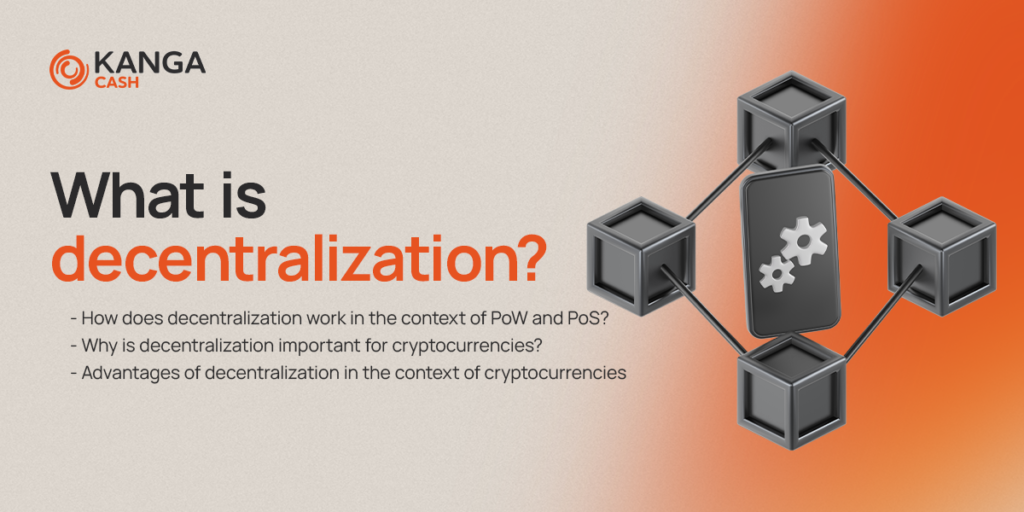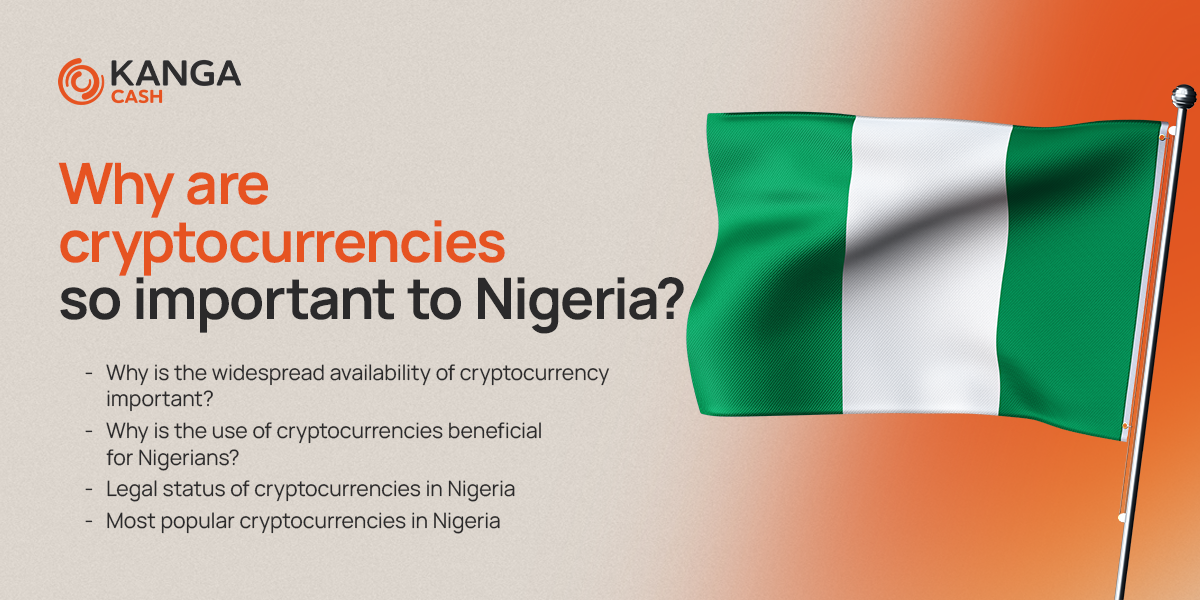What is decentralization?

If someone becomes interested in the topic of cryptocurrencies and blockchain technology, one of the terms they will often hear is decentralization. This is no surprise, as this is the fundamental principle underlying the attractiveness and functionality of cryptocurrencies. Additionally, it allows individuals greater control, strengthens security, promotes transparency and supports innovation. What else makes decentralization so important in the cryptocurrency world? More on this topic later in the text!
The system of currency creation, which is centralized, stands in opposition to decentralization. What does it mean? Each country has control over its own currency system. It follows that the government of a given country determines what money is considered official means of payment. This money is called “legal tender,” and is therefore considered legal and binding for transactions in a given geographic area.
Decentralization, on the other hand, is the principle of dispersing power and control over a given system or network, instead of concentrating it in one central point. In the context of money, this means there is no single central institution, such as a bank or government, that controls the issuance and regulation of money.
In the context of blockchain and cryptocurrencies, decentralization involves creating a system that is durable, secure and censorship-resistant. The main goal of decentralization is to distribute decision-making powers among as many participants as possible, with the aim of preventing situations in which the minority could violate the interests of the majority. At the same time, we avoid creating central, key elements that could threaten the entire system, for example in the event of an attack. As a result, decentralization contributes to increasing the stability and security of the blockchain and cryptocurrency system, while protecting it against potential censorship attempts.
Cryptocurrencies have introduced an innovative way to transfer digital assets securely. Security breaches in decentralized networks are rare because these networks rely on blockchain technology, which virtually eliminates the risk of data manipulation. Additionally, transmitting data over the network, which consists of many independent devices called nodes, eliminated the need to use intermediaries such as banks or lawyers.
How does decentralization work in the context of PoW and PoS?
The degree of decentralization is assessed differently depending on the specific protocols, and particular differences can be seen between Proof of Work (PoW) and Proof of Stake (PoS) networks.
In PoW networks, decentralization is based on computing power, i.e. the amount of computer calculations that network participants (miners) perform to maintain and secure the network. The more miners and distributed nodes in the network, the more decentralized it is. However, in practice it is often the case that large mining farms gain the upper hand, which may affect centralization in the longer term.
However, in PoS networks, decentralization is based on the amount of cryptocurrency that participants have. The more cryptocurrencies they hold, the more influence they have on the network. However, here too, if a few entities control a large amount of cryptocurrency, this may affect centralization.
In both cases, the key to maintaining decentralization is to encourage the participation of many different people and entities and prevent too much power from being concentrated in the hands of a few. Decentralization is therefore a challenge that individual blockchain networks try to solve in different ways.
Why is decentralization important for cryptocurrencies?
The benefits of decentralization make cryptocurrencies unique and attract the attention of both investors and blockchain enthusiasts. Decentralization is a key factor influencing the security, transparency and independence of cryptocurrencies.
As we already know, a decentralized currency is one that is not subject to the control of either central authorities or a small group of decision-makers. It is considered a good solution because with decentralized money, decisions are not made by a limited group of people in governments, who are often focused on short-term goals. So the automated and decentralized system is not controlled by one central institution, nor is it dependent on political decisions. It is worth adding that decisions regarding the functioning of cryptocurrencies are made in a more democratic and transparent way, and not by a small group of people.
Therefore, decentralization does not mean the absence of changes and updates. It does not mean that no one can work on the project, on the contrary, everyone can take part in voting.
Another important fact is that decentralization involves certain safeguards that make it difficult to create new currencies in an uncontrolled manner. Cryptocurrencies like Bitcoin have built-in limits on the process of creating new money, which is crucial to controlling inflation and maintaining the purchasing power of the currency. Therefore, the process of creating new currencies in a decentralized system is strictly regulated compared to printing money.
These strict regulations and supply control mechanisms make the process of creating new digital currencies in a decentralized system much more controlled and resistant to manipulation, which contributes to maintaining the stability and value of this currency.
Importantly, decentralized money is neither based on traditional assets nor has any physical support. Instead, it is based on advanced blockchain technology. It ensures security, transparency and immutability of financial operations.
Generally speaking, decentralization in cryptocurrencies means the absence of central authority, transparency, the ability to participate in the decision-making process, and the flexibility to shape the future of cryptocurrencies. Decentralization is the key feature that distinguishes cryptocurrencies from traditional financial systems.
Advantages of decentralization in the context of cryptocurrencies
Decentralized money is censorship-resistant, which means it cannot be easily blocked or controlled by one central institution or government. This resilience is a significant advantage of cryptocurrencies that contributes to greater financial freedom and the ability to avoid government control. For many people, this is a key reason why they choose cryptocurrencies as a form of storing and transmitting value.
Global availability is another important advantage of cryptocurrencies and decentralized money. Why? Cryptocurrencies are available all over the world, regardless of national or regional borders. This means that there are no geographical restrictions that could hinder access to them. Moreover, for many people around the world, traditional banking systems are inaccessible or limited. Cryptocurrencies give these people the opportunity to participate in the global economy and use financial services that they would not have access to traditionally.
It is also worth mentioning that simplified international transactions are one of the key benefits of using cryptocurrencies. It’s mainly about saving money and time. Traditional methods of transferring money internationally, such as bank transfers, often involve high fees. With cryptocurrencies, costs can be much lower, saving funds for those sending money. Cryptocurrencies also allow funds to be transferred virtually instantly, regardless of the recipient’s location. In traditional banking systems, international transfers can take days or even weeks.
It is also important that the use of cryptocurrencies allows you to transfer funds without the intermediation of financial institutions, which eliminates the need to trust a third party.
Other advantages include technological innovations and safety. Decentralized technology, especially blockchain, on which many cryptocurrencies are based, creates opportunities for the development of new solutions. This, in turn, can lead to innovations in finance and payment solutions. This technology also means that decentralized currencies are considered more secure. Their protection is based on dispersion in many network nodes, which makes hacker attacks more difficult.


